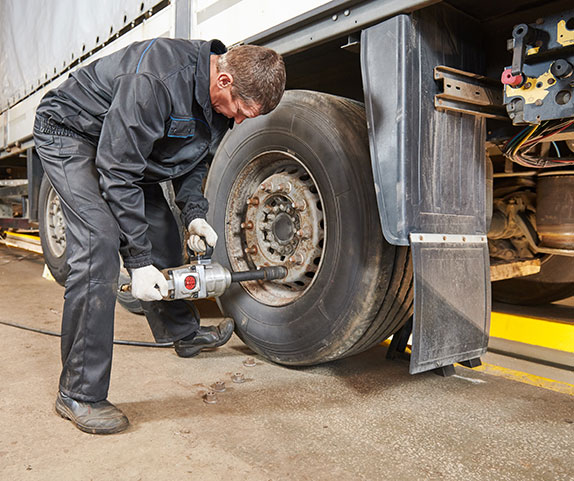Morris Tire: Your Relied On Local Tire Specialists
Morris Tire: Your Relied On Local Tire Specialists
Blog Article
The Link In Between Tire Service and Gas Effectiveness
Efficiency in fuel usage is a paramount problem for lorry proprietors seeking to enhance their driving experience. Among the numerous factors that influence fuel effectiveness, tire service attracts attention as an essential component that usually goes forgotten. The elaborate partnership between tire upkeep and gas economic situation is a testimony to the elaborate functions of a car. By comprehending just how tire care directly affects the efficiency of your lorry, you can unlock a realm of possibilities that not just enhance performance but likewise add to cost savings in the long run.
Relevance of Correct Tire Rising Cost Of Living
Correct tire rising cost of living is a vital element in making the most of fuel effectiveness and making certain optimal automobile efficiency. When tires are underinflated, it creates extra rolling resistance, triggering the engine to work tougher and shed more fuel to preserve the same rate. On the other hand, overinflated tires can cause a harsher adventure, irregular tire wear, and lowered grip. To find the recommended tire stress for your car, refer to the proprietor's handbook or the sticker situated on the motorist's side door jamb.
Preserving the proper tire pressure not just enhances gas efficiency however also improves driving safety and security. Frequently inspecting and adjusting tire stress, particularly in the past lengthy journeys, is a basic yet efficient way to enhance your automobile's gas economic climate and ensure a smooth driving experience.
Effect of Tire Tread Depth
Maintaining the recommended tire pressure is necessary for optimal car efficiency and gas efficiency; likewise, the walk deepness of your tires plays a crucial function in guaranteeing safety and security and traction when traveling. Tire tread deepness straight impacts the capability of your tires to hold the road surface area, particularly in damp or slippery problems. As tires put on down, their walk deepness decreases, affecting their ability to network water away and keep proper call with the road. The advised minimum walk depth is commonly 2/32 of an inch, but also for improved safety and efficiency, many specialists suggest changing tires prior to they reach this factor. Appropriate tread depth not only guarantees far better handling and stopping but likewise adds to sustain effectiveness by decreasing moving resistance. Regularly examining your tire tread depth and replacing tires when necessary is a basic yet effective way to advertise both safety and fuel efficiency on the road.
Duty of Wheel Placement in Effectiveness
Making sure accurate wheel placement is crucial for optimizing lorry effectiveness and making the most of gas economic climate. Proper wheel placement involves adjusting the angles of the wheels to producer requirements, guaranteeing that they are parallel to each other and vertical to the ground. When wheels are misaligned, it can lead to unequal tire wear, increased moving resistance, and reduced gas performance.

Additionally, exact wheel placement can likewise boost handling and security, decreasing the amount of energy required to navigate the vehicle (tire tracks morris il). By reducing unneeded friction and drag, proper wheel alignment plays a critical duty in enhancing general vehicle effectiveness and gas economic climate. Routine wheel positioning checks and changes are necessary for keeping optimal efficiency and making the most of gas savings
Link Between Tire Upkeep and MPG
A vital element of enhancing gas efficiency in cars is the upkeep of tires and their straight effect on miles per gallon (MPG) Appropriate tire upkeep plays an important role in maximizing gas economic situation. One crucial element affecting MPG is tire pressure. Underinflated tires enhance rolling resistance, causing the engine to function more challenging and shed even more fuel. On the other hand, overinflated tires lower the call patch with the roadway, bring about unequal wear and lowered fuel effectiveness. Consistently examining and maintaining the correct tire stress can significantly enhance MPG.
In addition, tire tread deepness likewise influences fuel effectiveness. By making certain tires have sufficient step depth, chauffeurs can enhance both security and fuel economy.
Fundamentally, correct tire maintenance, consisting of surveillance tire stress and step deepness, is directly connected to page achieving ideal MPG. By incorporating regular tire examinations and upkeep right into a vehicle treatment regimen, vehicle drivers can not just extend tire life yet likewise improve gas effectiveness, inevitably saving cash and reducing ecological effect.

Tips for Fuel-Efficient Tire Treatment
Provided the essential relationship in between tire upkeep and gas efficiency, executing effective methods for maximizing tire care is key to enhancing total car performance. To guarantee fuel-efficient tire care, routine tire pressure checks are crucial. Properly filled with air tires decrease rolling resistance, improving gas performance and expanding tire life expectancy. In addition, maintaining correct wheel alignment and harmonizing helps disperse weight evenly, avoiding unequal tire wear and optimizing gas usage. Revolving tires at suggested periods advertises even tread wear, improving gas efficiency by making sure all tires add similarly to vehicle performance. It is additionally important to inspect tires for signs of damages, such as cuts, punctures, or bulges, as these concerns can influence fuel effectiveness and general safety and security. Lastly, selecting tires with low rolling resistance can substantially boost gas economic situation. By integrating these fuel-efficient tire treatment pointers into a routine upkeep schedule, chauffeurs can maximize fuel performance, decrease operating costs, and lengthen the life of their Going Here tires.
Verdict
Finally, appropriate tire service plays a crucial role in gas effectiveness. Keeping right tire rising cost of living, checking walk deepness, and ensuring wheel positioning can all add to making the most of miles per gallon. By frequently preserving tires and complying with fuel-efficient tire treatment ideas, motorists can maximize their vehicle's performance and lower gas intake. It great post to read is crucial to prioritize tire maintenance to not just save money on gas prices however additionally to advertise overall vehicle effectiveness.
Report this page